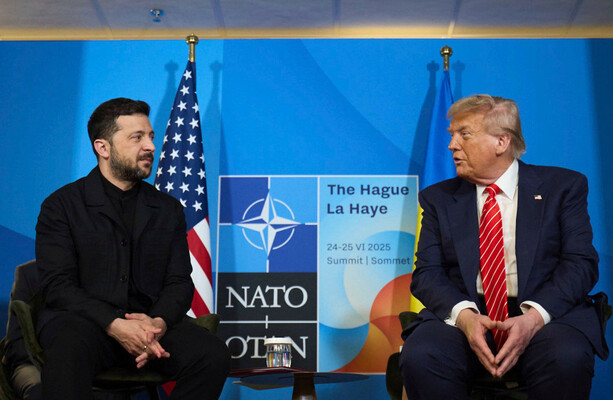US to Deliver Patriot Missiles to Ukraine Amid Controversy Over Funding

The United States has announced its decision to send advanced air defense systems, specifically Patriot missiles, to Ukraine. This significant military aid comes at a time of heightened tensions with Russia, and President Donald Trump has made it clear that European nations would bear the financial responsibility for this deal. This announcement arrives just two weeks after Trump seemingly imposed an arms embargo on Ukraine, raising questions about the shifting dynamics in U.S. foreign policy.
During a press conference, Trump did not hold back in his criticism of Russian President Vladimir Putin. He accused Putin of engaging in duplicitous behavior, stating that while the Russian leader may project a cooperative image, he is simultaneously launching attacks on Ukraine. Trump expressed frustration with what he described as “bullshit” tactics from the Kremlin during ongoing peace discussions.
Last night's announcement represents a notable reversal from earlier this month when the U.S. paused its arms deliveries to Kyiv. Instead, Trump has revealed a new agreement that would see NATO countries financially compensating the U.S. for the military supplies sent to Ukraine. “We basically are going to send them various pieces of very sophisticated military equipment, and they’re going to pay us 100% for them,” Trump asserted, emphasizing the idea that this arrangement would be lucrative for the United States.
The Patriot missiles are recognized as the U.S. military's primary surface-to-air defense weapon, designed to target and eliminate incoming threats from the air. These missiles can be deployed from mobile units, allowing for flexibility and rapid response. However, Trump noted that the precise number of missiles to be sent to Ukraine has not yet been determined. He underscored the urgency of the situation by stating that Ukraine “desperately needs” these arms to bolster its defense against Russian aggression.
Ukrainian President Volodymyr Zelenskyy had previously called on the U.S. to expedite the delivery of these weapons, expressing optimism about the potential for a deal with the Americans. Trump reiterated his position that the financial burden for these arms would fall on European allies and other NATO members, positioning the military aid as a business transaction rather than a unilateral support effort from the U.S. “It’ll be business for us,” Trump declared, highlighting his administration's approach to foreign military assistance.
On the diplomatic front, U.S. special envoy to Ukraine is set to embark on a new trip to Kyiv today, while Trump is scheduled to meet with NATO Secretary General Mark Rutte in Washington. When asked whether additional sanctions against Russia would be forthcoming, Trump stated that any decisions would hinge on the developments of the day.
This announcement and the surrounding comments have sparked considerable discussion about the implications for U.S.-Ukraine relations and NATO’s role in the ongoing conflict. With the stakes higher than ever, the global community watches closely as developments unfold.



























